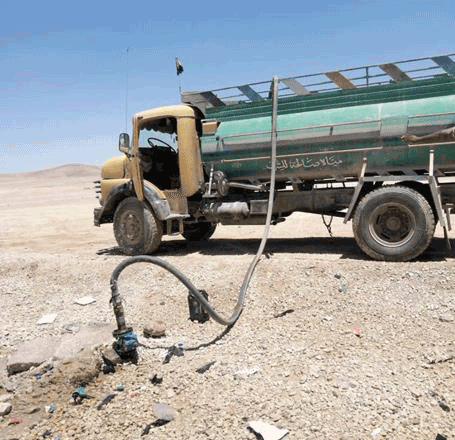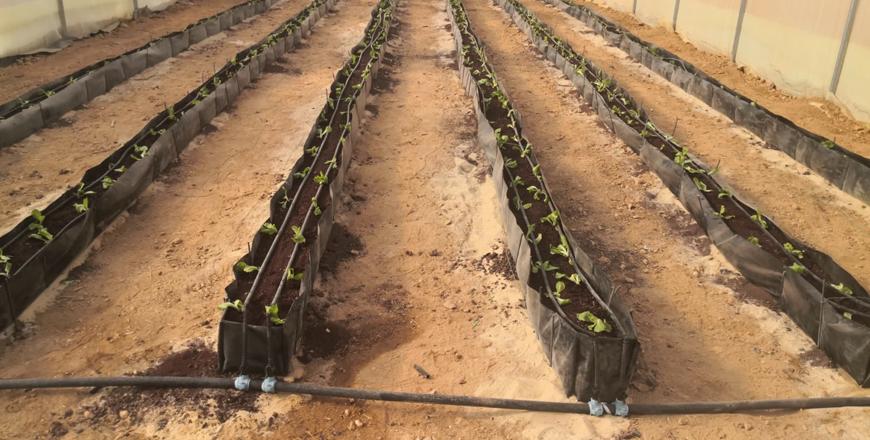You are here
Report highlights Jordan’s heavy reliance on tanker water markets
By Mays Ibrahim Mustafa - Sep 09,2023 - Last updated at Sep 09,2023

Jordan relies heavily on tanker water markets, which are responsible for 27 per cent of the over-abstraction of its ‘dwindling’ groundwater, according to a recent article published in Nature Sustainability, a monthly peer-reviewed scientific journal (Petra file photo)
AMMAN — Jordan relies heavily on tanker water markets (TWMs), which are responsible for 27 per cent of the over-abstraction of its “dwindling” groundwater, according to a recent article published in Nature Sustainability, a monthly peer-reviewed scientific journal.
The article, titled “unexpected growth of an illegal water market”, presents the findings of research led by Stanford University scholars and an international team of scientists.
It revealed that unregulated water sales in Jordan exceed official government well licences by 10.7 fold.
The research also showed that TWMs supply only 15 per cent of all drinking water at high prices, while accounting for 52 per cent of the total funds spent on water by Jordanian households and firms.
A ‘lifeline’ for vulnerable households
The article pointed out that although tanker water prices are on average 4.8 times more expensive than piped water, TWMs provide an “essential lifeline” for households dealing with intermittent water supply systems.
Ninety-two per cent of households in Jordan with access to less than 40 litres per person per day of piped water purchase tanker water, according to the research.
However, it pointed out that TWMs in Jordan are competitive markets that price water at marginal costs, which means that “their negative impacts are a direct consequence of water demands unmet by the public supply system”.
The article further highlighted the inefficiency of transporting water via road, as 69 per cent of tanker water sales revenue is spent on transport costs. This supply mode also creates unnecessary greenhouse gas emissions, it noted.
Costly growing dependence on TWMs
The research projects that household’s reliance on tanker water will grow 2.6-fold by 2050 due to population growth and climate change. Moreover, TWMs are projected to transport 95 million m3 of water per year in 2050 compared with 59 million m3 in 2015.
Groundwater depletion, expanding transport distances and increasing demand will also lead to price increases, the article stated.
“Average tanker water prices are projected to rise from US$3.0 m-3 currently to US$4.0 m-3 in 2050 across Jordan as a whole and from US$3.2 to US$5.2 m-3 in 2050 in the capital city of Amman,” it showed.
The research also indicates that the number of residents receiving less than 40 litres per person per day of public water supply will increase fivefold by 2050. Only 64 per cent of that population will still be able to afford purchasing tanker water, compared with 92 per cent currently.
Public supply improvements and policy reforms
The research suggests that ensuring water security and addressing groundwater depletion by the tanker market requires an investment in supply augmentation complemented by improving the efficiency and equity of the public water distribution system.
“Notably, even Jordan’s recent plans for large desalination investments would only moderately reduce the demand for tanker water if public water access remains highly unequal,” it stated.
Achieving an equitable distribution of water resources would require reducing intermittencies and pipe leakages in the public supply system, it added.
The article also stressed the importance of designing policies to regulate TWMs that “explicitly” consider their vital role in improving household water access.
It explained that while Jordan’s current approach to regulate TWMs by closing illegal tanker wells can “stabilise” groundwater abstractions, it will negatively impact water access for vulnerable households.
However, it stated that “[t]he existing tanker registration system offers a potential basis for regulating the extensive water sales to businesses”.
Related Articles
The Ministry of Water and Irrigation on Wednesday dismantled an illegal pipe in Balqa Governorate that was diverting 12,000 cubic metres of water monthly to a household, according to a government official.
Without reforms, the world will be plunged into a water crisis that could be crippling for hot, dry countries, the United Nations recently warned.
AMMAN — According to the United States Agency for International Development (USAID) Jordan, the Water Innovations Technology (WIT) project h
















